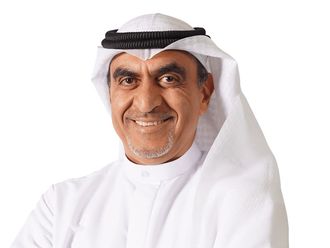Singapore: The perception that Islamic banking is profitable and has great unexplored potential is encouraging many countries, including secular and non-Muslim ones, to grab a slice of the pie.
However, this rush without full knowledge of the system will create its own weaknesses that will need to be overcome in coming years, an Islamic finance expert said.
"First of all, the interest is dollar-driven. It is driven by the fact that Islamic banking can be very profitable," said Andrew White, director of the International Islamic Law and Finance Centre in Singapore.
Interest in Islamic banking, a sector that survived the financial crisis in better shape than conventional banks, has grown in the past few years, not only in Muslim countries, but also in secular countries, he said.
"We are seeing a growing interest in Europe, the United Kingdom, the United States... and the reason for that is it can be very profitable," White told Gulf News on the sidelines of the World Islamic Banking Conference-Asia.
"It is a new market that has not been fully explored by some of the traditional players."
Apart from the "massive" Muslim populations in Asian countries, including Malaysia, Indonesia, Bangladesh and Pakistan, the emergence of Asia itself as a financial centre is another factor driving interest in Sharia banking.
While Malaysia is considered the main Asian centre for Islamic banking, White strongly believes there is a place for other players in the industry, and their role could be complementary, rather than competitive.
"Each of the [Asian] countries will have to decide what part of the industry it wants to play a role in," White said.
Singapore's leverage
According to White, Singapore, one of the main financial hubs in Asia, "finds its strength from leveraging what it already does very well, which is wealth management and private equity, capital markets. It already does that in the conventional side; it will certainly leverage on that on the Islamic side."
Despite the fact that Hong Kong is the only Asian country that looks similar to Singapore in many ways, Singapore still has the niche industry.
"One of the weaknesses of the industry is that there is such a rush to come into it. Conventional bankers are suddenly saying ‘Hey! I can be an Islamic banker now'," White said.
The conception that Islamic banking doesn't charge interest, and some bankers simply "change some terms here and there", will not last.
"Do they understand Islamic banking? No. Do they understand Islamic economics? Not necessarily. Do they understand Islam? Not necessarily," White added.
He said education, training and a better understanding of the Islamic banking system were required.












